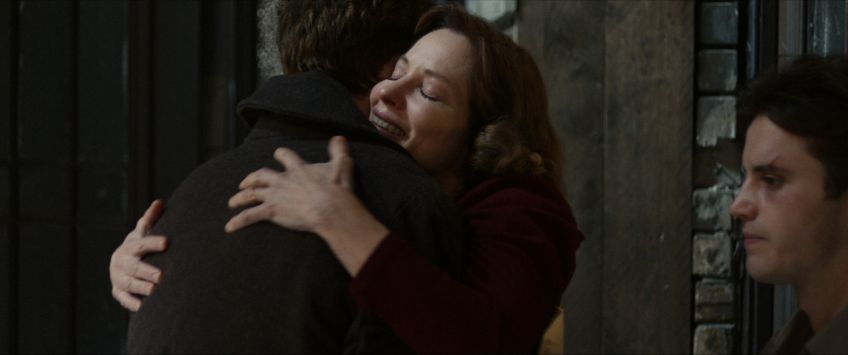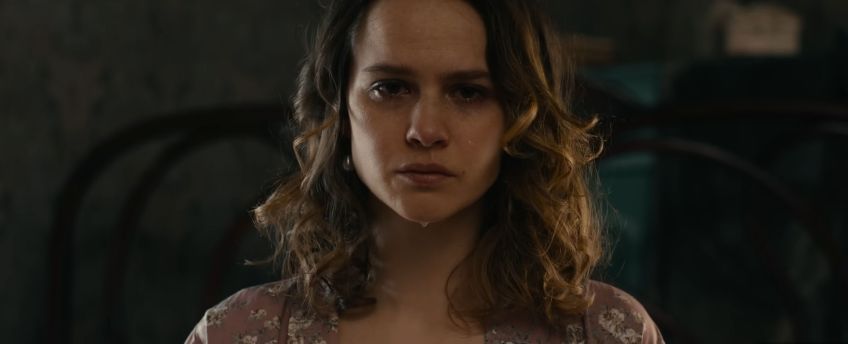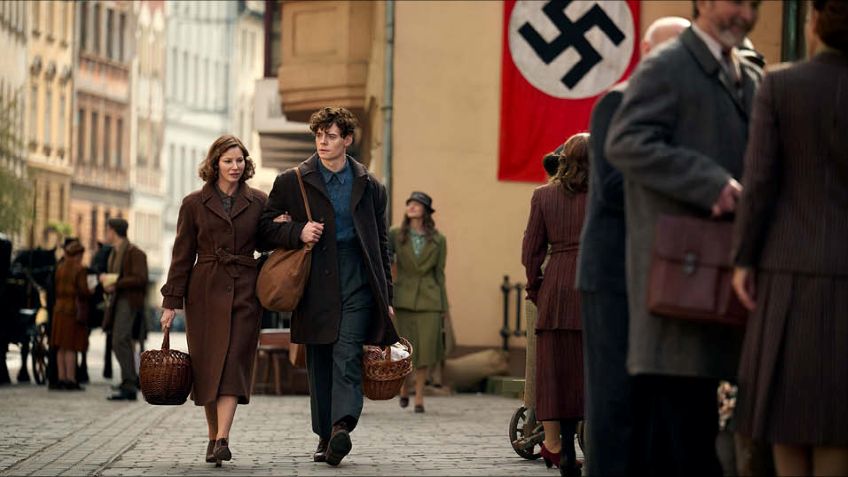Joyce Glasser reviews Desperate Journey (November 28, 2025) Cert 15, 108 mins. In cinemas
There is nothing more offensive than a fictional Holocaust film. After hearing about the story behind the film Desperate Journey, I needed to skim the autobiography (Living with the Enemy) on which it’s based to believe it wasn’t made up. Here’s proof that truth really is more harrowing than fiction, and that the will to survive has never been so cruelly tested.
If Annabel Jankel’s lacklustre direction plunges the late Freddie Knoller’s remarkable story into cliché, she cannot extinguish the story’s hair-raising tension nor detract from the appealing Danish actor Lucas Lynggaard Tønnesen’s convincing performance.
Scriptwriter Michael Radford drops us into the saga in media res with a flashback in the event we think 18-year-old Viennese Freddie Knoller’s (Tønnesen) ability to evade the enemy lasts. If the journey from the frying pan to the fire is all but inevitable, survival is a matter of chance, strength and ingenuity.

Winter, 1945. In a blizzard, with no more than his striped slave-labour rags, Freddie is being evacuated on a death march from Auschwitz to Mittelbau-Dora concentration camp. He stops to help a friend who has collapsed and is shot. Cut to Vienna.
The Jews of Vienna are taken by surprise when the city opens its arms to the invading charismatic German leader, Adolf Hitler. A virgin at 17, Freddie’s main preoccupation had been his music, studies and girls – or pornography. By 1938 the Austrian Anschluss is closing in and with the horrors of Kristallnacht, even Freddie’s distanced, overly optimistic father (Ed Stoppard – Tom’s son) and warm-hearted mother (Sienna Guillory) must face the truth.
Thanks to their more focussed neighbour’s actions, Freddie’s elder brother Eric is sent to live with a Jewish family in Coral Gables, Florida. The family pay for Freddie to join a group of Jews heading for England on train, truck and by foot. Mr Knoller warns Freddie to think only of himself. His mother tells him to make something of himself. He hugs his mother. He wants to hug his father, who extends his hand in a handshake. They will never see each other again.
In Freddie’s second taste of the Nazi’s brutality, the escaping group is gunned down at the border and Freddie, who survives, eventually makes it not to London, but to Paris.
There, in a thrilling scene, the starving, paperless (a farmer’s wife tells him not to use his German passport with the J on it) evacuee wanders to Pigalle – which he’d read about in his girly magazines. There he watches a slippery Corsican bouncer named Cristos (Fernando Guallar) struggle with his bad German to entice three German soldiers into his upscale bar and cabaret-cum-brothel.
As the disgusted soldiers walk away, Freddie tells them in perfect German that the place has the most beautiful girls in Paris, and, on this recommendation, they change their minds.

Cristos sends him to Mrs Huberman’s (Smadi Wolfman) restaurant-hotel where he gets a cheap room. Although Freddie is living under an alias, Mrs Huberman recognises a fellow Jew and, after feeding him, sends him to the hardened, intimidating Pierre (Hugo Speer), who, for a price, can provide him with papers.
To afford the papers, Freddie makes himself indispensable to Cristos and gets a job in the cabaret catering to the Gestapo. They offer him champagne, give him huge tips and seem to buy into his story about being Robert from Alsace.
Still a virgin, and a romantic, Freddie falls for the club’s leading entertainer, the off-bounds Jacqueline (Clara Rugaard) who confesses she hates her job, too. He proposes running away and concocts a plan. But Jacqueline isn’t who she seems any more than is Pierre, or the Cabaret’s Chef Bossard (Nathaniel Parker).
For time and budgetary constraints, Academy Award winning Michael Radford (Il Postino: The Postman; White Mischief) depends on dramatic licence to adapt this story, while remaining truthful to the even more distressing events described in the book.
Flawed though it is, the stakes are much higher in this variation on the film Cabaret (based on Christopher Isherwood’s Goodbye to Berlin), and the contrast between the glamourous setting, the ghastly Nazi’s within it and the depravity outside, creates an oppressive atmosphere. But it’s the journey of sheltered, girl-crazy Freddie, hugging his mother goodbye; celebrating his first job in a brothel, and defying death in the French Resistance that remains with you.




